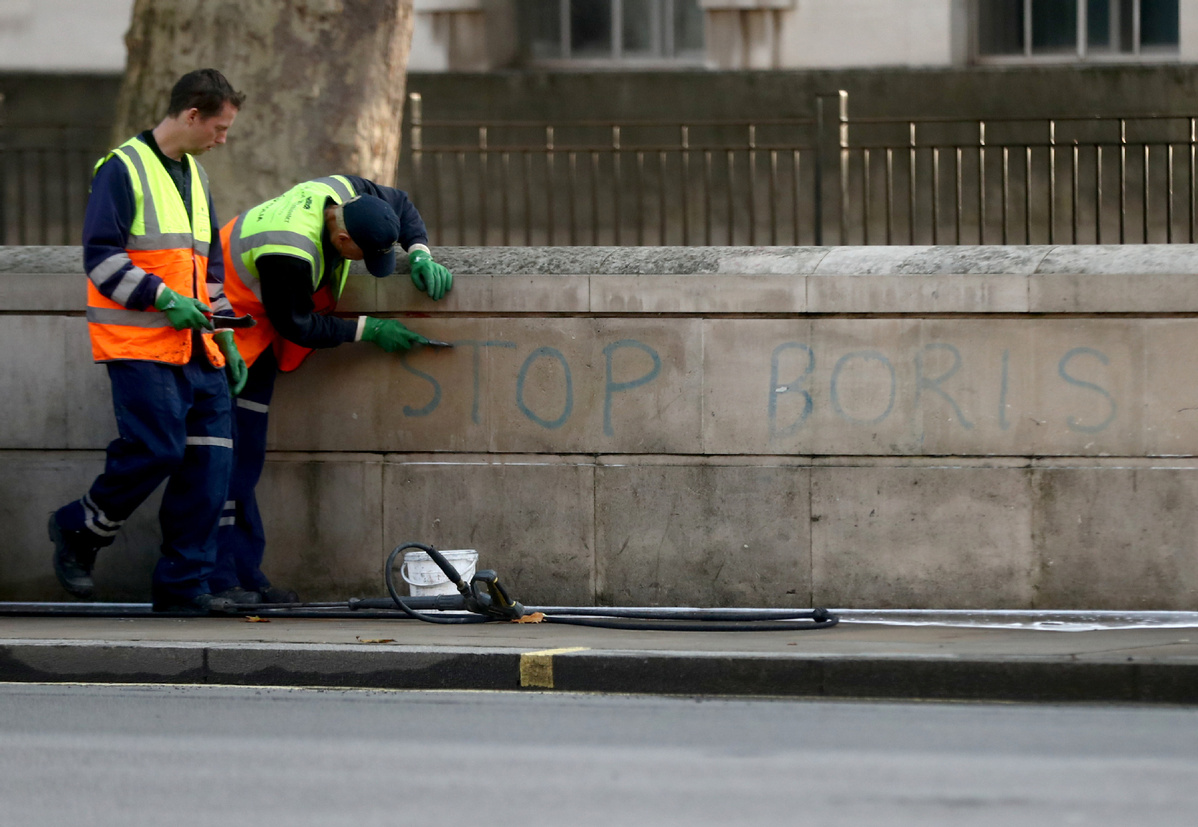Brexit in the balance as Johnson faces crunch votes
Updated: 2019-10-22 20:02

More than three years since the United Kingdom voted 52%-48% to leave the European Union, the Brexit crisis is straining the British political and constitution system to breaking point.
Johnson confounded his opponents by winning a Brexit deal from the EU on Thursday, though he was forced by his opponents - reluctantly and with a mere unsigned photocopy - to ask for a Brexit delay on Saturday. House of Commons speaker John Bercow refused a vote on his deal on Monday.
If Johnson is defeated on Tuesday, much will depend on how the EU plays yet another Brexit quandary.
European Council President Donald Tusk said he was discussing the request for a Brexit delay with the leaders of the other 27 member states and would make a decision "in the coming days".
"I have no doubt that we should treat the British request for an extension in all seriousness," Tusk told lawmakers in the Strasbourg assembly of the European Union parliament. "A no-deal Brexit will never be our decision", he said to applause from lawmakers.
In a sign of the frustration in Brussels, European Commission President Jean-Claude Juncker said Brexit was a waste of time and energy and that the European Parliament could only approve Johnson's deal after the British parliament.
Brexit Party leader Nigel Farage told the EU parliament that another delay was on the cards.
Behind the daily Brexit combat in parliament, the courts and at late-night EU summits, a much bigger game is being played over whether Brexit will happen at all.
But while Johnson faces legislative booby traps at every juncture, the opponents of Brexit are also deeply divided - one of the main reasons their campaign to "Remain" failed in the 2016 referendum.
Still, Johnson is asking a divided parliament where he has no majority to approve in just three days one of the most important pieces of legislation in recent British history.
The so called WAB (Withdrawal Agreement Bill) will have less time for debate in the House of Commons than a law to ban the use of wild animals in circuses, according to the Institute for Government.
Previous bills to implement major European treaties have taken between 10 and 40 days to get through parliament. Government ministers said parliament has enough time already to discuss every intricacy of Brexit.
The opposition Labour Party will vote against both WAB and the timetable, The Times's political editor said. The Northern Irish Democratic Unionist Party are also likely oppose both, a UTV reporter said.
Reuters
























